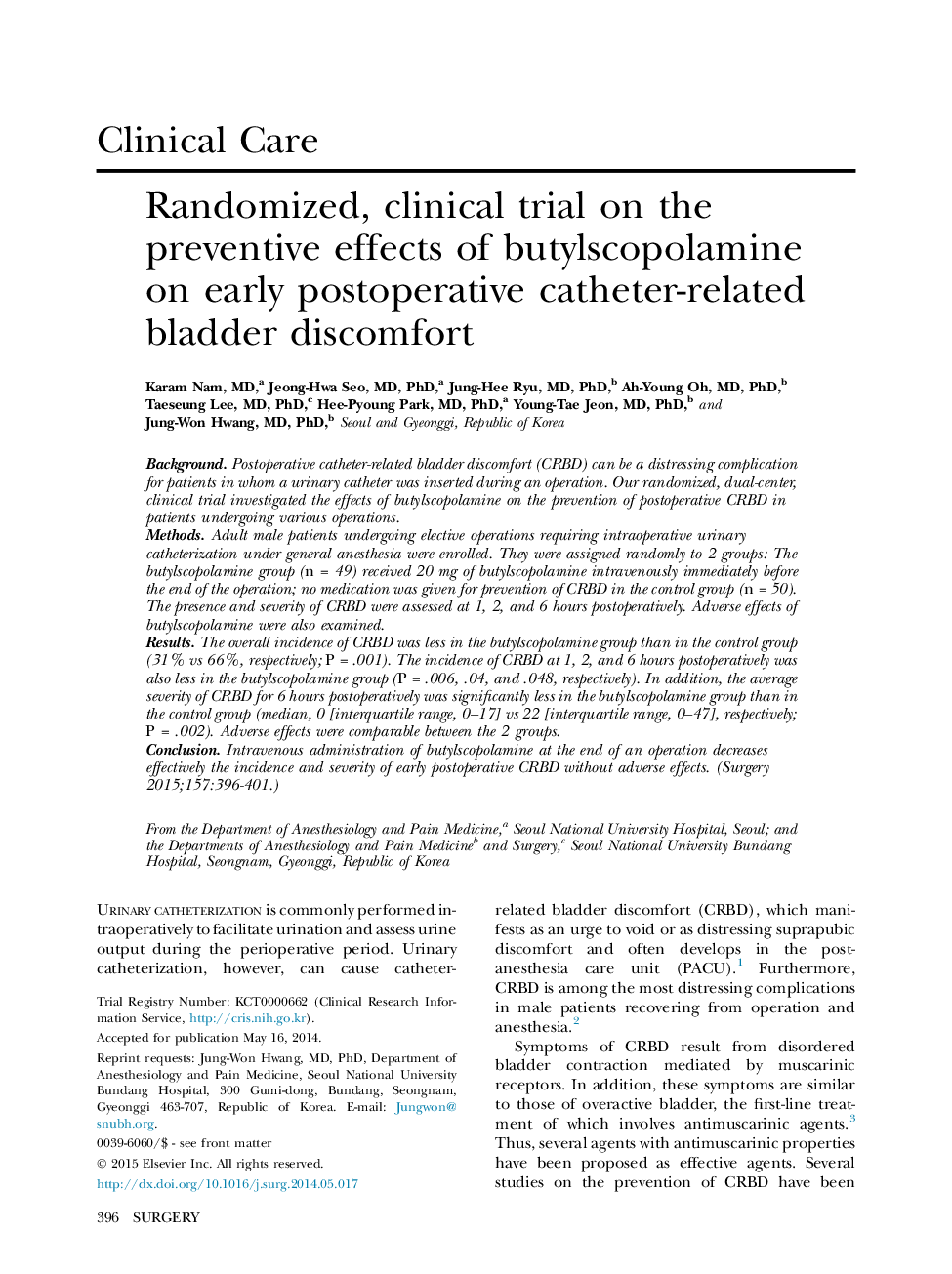| Article ID | Journal | Published Year | Pages | File Type |
|---|---|---|---|---|
| 6255519 | Surgery | 2015 | 6 Pages |
BackgroundPostoperative catheter-related bladder discomfort (CRBD) can be a distressing complication for patients in whom a urinary catheter was inserted during an operation. Our randomized, dual-center, clinical trial investigated the effects of butylscopolamine on the prevention of postoperative CRBD in patients undergoing various operations.MethodsAdult male patients undergoing elective operations requiring intraoperative urinary catheterization under general anesthesia were enrolled. They were assigned randomly to 2 groups: The butylscopolamine group (n = 49) received 20 mg of butylscopolamine intravenously immediately before the end of the operation; no medication was given for prevention of CRBD in the control group (n = 50). The presence and severity of CRBD were assessed at 1, 2, and 6 hours postoperatively. Adverse effects of butylscopolamine were also examined.ResultsThe overall incidence of CRBD was less in the butylscopolamine group than in the control group (31% vs 66%, respectively; P = .001). The incidence of CRBD at 1, 2, and 6 hours postoperatively was also less in the butylscopolamine group (P = .006, .04, and .048, respectively). In addition, the average severity of CRBD for 6 hours postoperatively was significantly less in the butylscopolamine group than in the control group (median, 0 [interquartile range, 0-17] vs 22 [interquartile range, 0-47], respectively; P = .002). Adverse effects were comparable between the 2 groups.ConclusionIntravenous administration of butylscopolamine at the end of an operation decreases effectively the incidence and severity of early postoperative CRBD without adverse effects.
